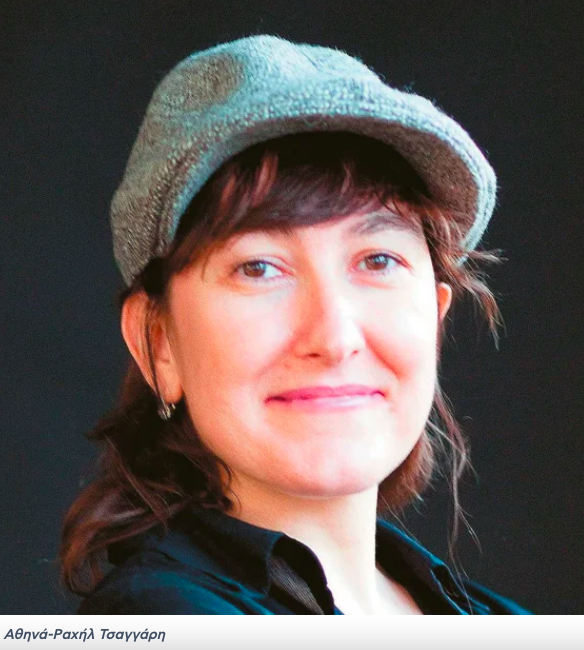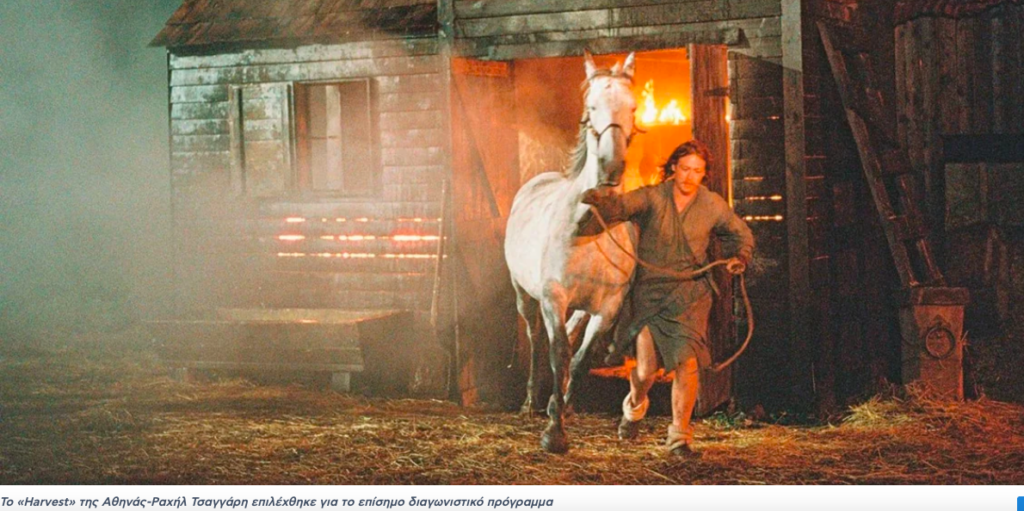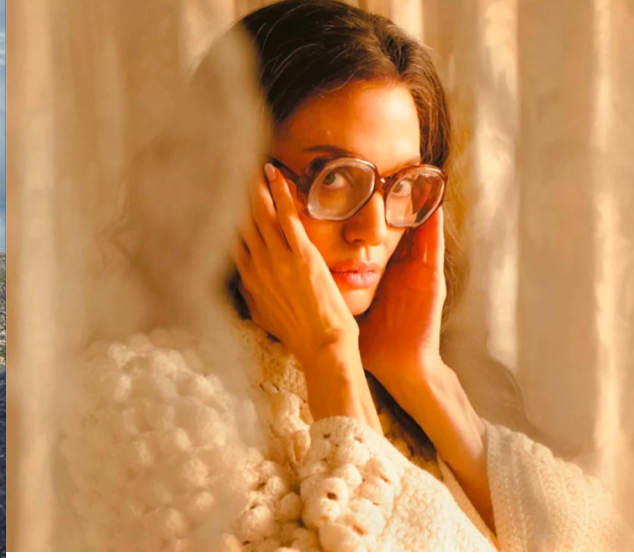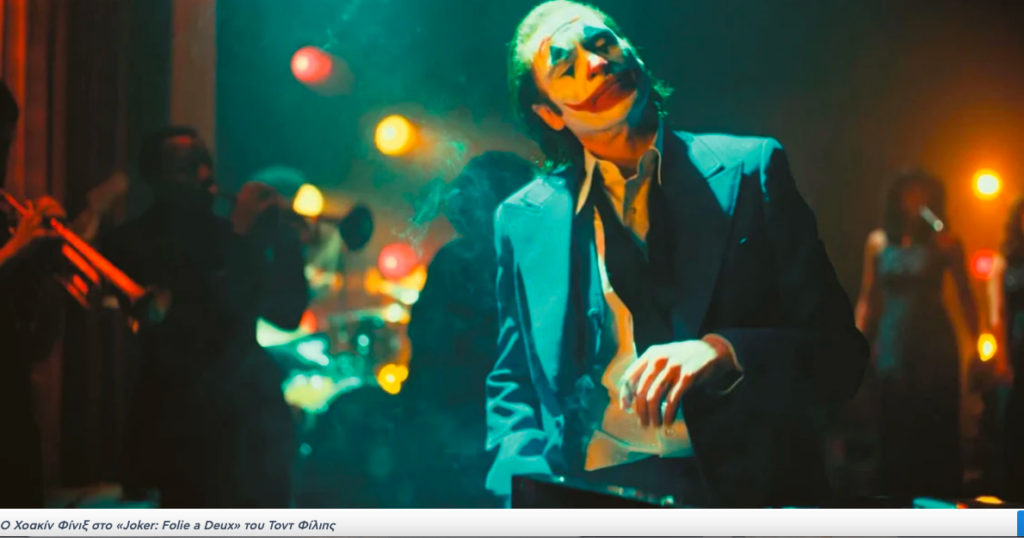With two films by Greek creators, a highly anticipated movie featuring Angelina Jolie as Maria Callas, and a swarm of celebrities arriving on August 28th for their customary pilgrimage on the red carpet of the oldest film festival in the world, the new season kicks off
The allure and almost untouched prestige of the Venice Film Festival, despite being the oldest in the world, can be attributed to many factors. Established in 1932 as part of the Biennale’s activities through the initiative of Giuseppe Volpi (who, we may note, was a member of Italy’s Nazi party and a close friend of Mussolini), it continues to serve as the ideal venue—thanks to its blessed geographical location—for the parade of stars (and their vanity). It remains vibrant, appealing to the entertainment industry, engaging to the public, and in active dialogue with the times.

Especially since the artistic director Alberto Barbera generously—and wisely—welcomed on-demand platforms and their productions into the festival, while the French at Cannes disdainfully reject these new trends and continue to guard what they consider the cinematic Thermopylae. Venice, in contrast, is experiencing a renaissance that many festivals would eagerly trade for their dust and mothballs.
The success of the 74-year-old Italian’s decisions—who, by the way, announced his departure from Twitter last week, railing against Elon Musk and his controversial views—is underscored by the recent renewal of his contract as the festival’s general director for another two years.

Greek Glimmer
Looking at it from a patriotic perspective, the Italian festival has shown a preference or at least an interest in Greek creators and their works over the past fifteen years. Just last year, the much-celebrated “Poor Things” by Yorgos Lanthimos won the Golden Lion. In 2018, “The Favourite” won the Silver Lion and the Grand Jury Prize, while in 2011, with “Alps,” Lanthimos and his artistic alter ego, Efthymis Filippou, were awarded the Best Screenplay prize.
Athina Rachel Tsangari
A year earlier, Athina Rachel Tsangari received warm reviews for her film “Attenberg,” and its lead actress (and Lanthimos’s partner) Ariane Labed won the Best Actress award. Moreover, in 2013, Alexandros Avranas left the Mostra with a Silver Lion for his film “Miss Violence,” and its lead actor Themis Panou received the Best Actor award.

This year, both Avranas and Tsangari return to familiar territory. Tsangari’s new film “Harvest” has been selected for the official competition, while Avranas’s “Quiet Life” will compete in the parallel Orizzonti section.
Post-Western
Shot in the old analog way, that is, on film, “Harvest” is Tsangari’s first English-language film. Many may remember her from “Chevalier” and the role she gave to Sakis Rouvas, which more than served its purpose as a viral bait. Co-produced by Sixteen Films (founded by Ken Loach) and Faliro House Productions, “Harvest” is based on the eponymous 2013 Booker Prize-nominated novel by British journalist and author Jim Crace.
According to the film’s description, it is a postmodern western set in an unknown place and time (but strongly reminiscent of the medieval period) where the inhabitants of a village engage in a relentless witch hunt, targeting the new ideas of modernization as their prey.
Apathy Mode
While Tsangari’s film is inspired by Crace’s book, Avranas draws from real life. The starting point for “Quiet Life,” initially titled “Apathy,” is the increasingly observed resignation syndrome. It mostly affects children, who, losing all hope and interest in life, fall into a state of apathy.
In extreme cases, they stop speaking, eating, and even responding to pain, and there have been instances where this rare mental disorder has driven children into a state of perpetual sleep. The syndrome, primarily observed in Sweden (with official reports citing 700 cases in the country) and mainly affecting children from immigrant families, serves as the basis for Avranas’s new film, co-written with Stavros Pampallis.
The story revolves around the lives of two refugees seeking political asylum in Sweden. Their application is rejected by the authorities, triggering the collapse of their daughter, who falls prey to resignation syndrome. Sharp and disturbingly timely, to say the least.
Angelina as Callas
There’s a third reason why this year’s Venice Film Festival has a special Greek interest. The official competition will feature the world premiere of the much-discussed film “Maria” by Chilean director Pablo Larraín. This film completes an unofficial trilogy that the 47-year-old director began in 2016 with “Jackie,” a biopic about the late First Lady of the United States starring Natalie Portman, and continued in 2021 with “Spencer” about Princess Diana, portrayed by Kristen Stewart. “Maria” follows the last years of Maria Callas’s life in the 1970s in Paris. Undoubtedly, it is the most photogenic product of the recent Callas-mania, with the ultimate diva portrayed by Angelina Jolie, who last year traveled to Ilia, Greece, for the film’s shooting.

Jolie as Maria Callas in Pablo Larraín’s film “Maria”
The American actress says she respects and honors the memory and legacy of the Greek soprano and has stated that this role marked one of the biggest challenges of her career—though, to be fair, she hasn’t taken on many. To be honest, the expectations generated by Larraín’s cinematic biographies in the minds of viewers have so far proved overwhelmingly greater than the result their eyes see.
In any case, the competition in this year’s official selection is expected to be fierce, making the jury’s task difficult. The jury is headed by Isabelle Huppert—expect chaos on the red carpet. Of course, there’s Pedro Almodóvar’s first English-language film, “The Room Next Door,” starring the irresistible Tilda Swinton and Julianne Moore, the film adaptation of William Burroughs’s “Queer” by Luca Guadagnino starring Daniel Craig, who tries valiantly to shed his “James Bond” stigma, and the detective Benoit Blanc’s costume (from “Knives Out”), and of course, “Joker: Folie a Deux” by Todd Phillips.

Joaquin Phoenix in “Joker: Folie a Deux” by Todd Phillips
If there were a meter for anticipation, it would have already broken for Joaquin Phoenix’s return to the role of the antihero that earned him his first Oscar, this time joined by Lady Gaga. One could say that the 53-year-old American director’s film has already scored a victory even before its release. If not in the preference of the Mostra jury, certainly at the box office, given the $1 billion that “Joker” made at the global box office in 2019. The 81st Venice Film Festival runs from August 28 to September 7.
Ask me anything
Explore related questions





